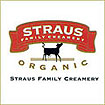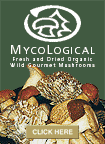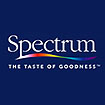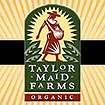Fruity Vegetables and Fish Reduce Asthma and Allergies
Giving
children a diet rich in fish and "fruity vegetables"
can reduce asthma and allergies, according to a seven-year study
of 460 Spanish children, published in the September issue of Pediatric
Allergy and Immunology. The findings also reinforce the researchers'
earlier findings that a fish-rich diet in pregnancy can help to
protect children from asthma and allergies.
"We believe
that this is the first study that has assessed the impact of a
child's diet on asthma and allergies and also taken into account
the food their mother ate during pregnancy" says lead author
Dr Leda Chatzi from the Department of Social Medicine at the University
of Crete, Greece.
"Because we
studied the children from pregnancy to childhood, we were able
to include a wide range of elements in our analysis, including
maternal diet during pregnancy, breastfeeding, smoking, the mother's
health history, parental education and social class."
Researchers followed
the progress of the children, on the Spanish island of Menorca,
at regular intervals from before they were born until they were
six-and-a-half.
They discovered
that children who consumed more than 40 grams of "fruity
vegetables" a day - namely tomatoes, eggplants (aubergines),
cucumber, green beans and zucchini (courgettes) - were much less
likely to suffer from childhood asthma.
And children who
consumed more than 60 grams of fish a day also suffered less childhood
allergies, echoing the protective effects they experienced when
their mothers ate fish during pregnancy.
However the researchers
noted that the dietary effects were quite specific and that other
fruits and vegetables examined did not provide the same protective
effect. Nor did other food groups included in the study, such
as dairy products, meat, poultry and bread.
The mothers of
232 boys and 228 girls, who had been recruited during antenatal
classes, completed detailed questionnaires on their children's
health, weight, diet and any breathing problems every year until
their child was six-and-a-half. 90 per cent of the children also
underwent allergy testing - skin prick tests were used to check
their response to the six most common allergens, including grass
pollen and cats.
The researchers
found that just under nine per cent of the children suffered from
some degree of wheezing, including six per cent with an allergy-related
wheeze. And 17 per cent reacted to at least one of the allergens
in the skin prick test.
"After adjusting
the results for a wide range of variables, we concluded that the
link between symptom-free children and a diet rich in fruity vegetables
and fish was statistically significant" says Dr Chatzi.
"The biological
mechanisms that underlie the protective affect of these foods
is not fully understood, but we believe that the fruity vegetables
and fish reduce the inflammation associated with asthma and allergies.
"The interesting
thing about this study is that it followed a large number of children
from the womb to the age of six-and-a-half and incorporated a
wide range of dietary, social and health factors" says the
Journal's Editor, Professor John Warner, Head of the Department
of Pediatrics at Imperial College London.
"It provides
parents with specific advice about the health promotion benefits
of including fish and fruity vegetables as part of a balanced
diet for both their children and the rest of the family."
|














